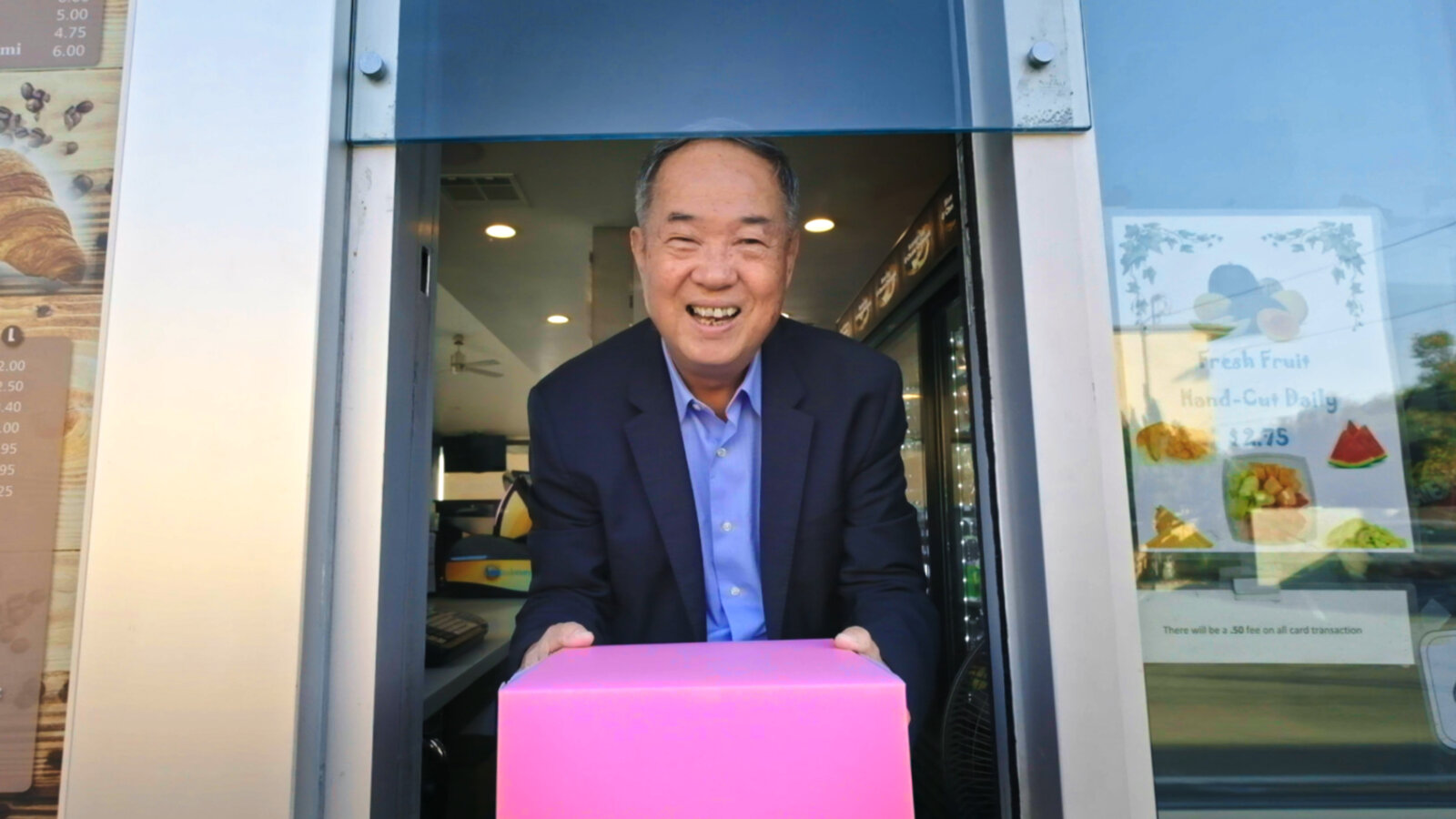The Donut King
(USA, 100 min.)
Dir. Alice Gu
Tim Horton’s often receives a stamp of Canadian pride for its accessible coffee and donuts, but few food items embody a sense of American patriotism as donuts do. Alice Gu’s scrumptious documentary The Donut King explores the donut’s power to embody the American Dream with sugary goodness. The film offers an unexpected perspective on the USA’s immigrant population viewed through the lens of a donut hole. Director Alice Gu tells the story of Ted Ngoy, whose name is to California what Tim Horton’s is fried fritters in the land of the maple leaf. He is the donut king.
Gu charts the rise and fall of the titular titan who built an American empire after fleeing Cambodia in 1975. The film tells how Ngoy saved his family, found considerable success, and was living the American dream within a few years of his arrival. However, the film shows how the American dream, like a donut, is prone to crumble. Rather than dwell on the crumbs, The Donut King celebrates the hand that not only made the donut, but also helped others bake their own destinies along the way.
The Donut King begins as a conventional biography of a man behind a sugary empire. Gu draws upon interviews with Ngoy, his ex-wife, their children, and friends and family. The film tells audiences how Ngoy was a shrewd businessperson who learned to manage a donut franchise and translated his aspirations for his family into hard work and prosperity. Ngoy recounts his quick rise up the California donut empire, acquiring his own donut shop, named Christy’s after his wife, and expanding the franchise with extraordinary speed. The family recalls with giddy excitement how they all pitched in at the donut shops. The menu and basic customer service prompts provided early English classes, while dishing donuts provided their fellow Americans with a chance to see members of the country’s growing Asian-American population. Similarly, their story is one of American expansion as the growth of highways and suburban living went hand-in-hand with food that commuters could eat on the go. The film sees immigrants as an unsung key to the growth of America’s economy in this period as hands in the service industry worked tirelessly for the tidbits that fuelled the daily commute.
Although Ngoy is a great character who fuels a fun doc portrait, Gu doesn’t settle for a sugary celebration of the donut king. The doc inevitably backtracks a little as it traces Ted’s origin story to situate his empire within the larger story of refugees landing in America. The film learns about his time in the military in Cambodia and the devastating consequences of the Khmer Rouge’s regime. It’s in this sequence about the Cambodian genocide where the members of the Ngoys’ extended family gradually take prominence. Unlike Ngoy, who used his military connections to escape to America, the other participants endured a longer brunt with the Khmer Rouge. There are stories of heartache and divided families as the interviewees recall working in brutal labour camps and rice fields to forcibly fulfill the Khmer Rouge’s communist ideals.
With the Ngoy family’s story in America starting at the military base of Camp Pendleton, so begins a tale of Cambodians nourished by sugary donuts. Ted and the other interviewees explain how the donut king expanded his empire by providing opportunities to fellow Cambodian families as they established new lives in America. Gu’s portrait of Ngoy shifts to favour the greater empire Ted built: one of a rich Cambodian-American community that thrived through the donut king’s pay-it-forward ethic. His willingness to use his success to better the lives of others truly embodies = the American dream—it’s not some unattainable entity, especially as Gu’s film defines success not as material wealth, but as the ability to provide safety, stability, and security for one’s family.
Like many tales of the American dream, Ngoy’s story includes a dramatic fall. However, while the doc sees the donut king struggle to retain an empire, it also observes the stories of the people who thrived because of Ngoy’s goodwill. As Gu follows the stories of new empires emerging with the cronut craze and the power of social media, The Donut King sees a passing of the crown as a new generation stakes its claim on an empire. Besides fatty foods, what is more American than that?
The Donut King will be in release beginning Nov. 19 at virtual screenings held through select donut shops nationwide. (Order a dozen for the show – better than popcorn!)












